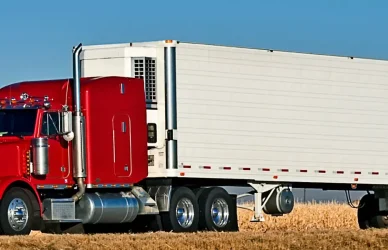Iowa’s Governor, Kim Reynolds, has signed a bill into law that limits pain and suffering compensation to $5 million in trucking accident cases. This step was taken due to the increase of “nuclear verdicts” by juries that exceed $10 million across the country.
Initially, the Iowa Senate limited non-economic damages to $2 million in February, but the Iowa House increased the cap to $5 million due to conflicting interests and lack of political support. Starting in 2028, this new law will adjust compensation depending on inflation. Additionally, the House has also made changes to employer liability, specifically regarding freight carriers hiring unsafe drivers.
“While many said it was a bridge too far for the Iowa Motor Truck Association and trial attorneys to come together and support — support tort reform, commonsense tort reform,” Iowa state Sen. Mike Bousselot reportedly said. “I think the goal of this amendment is protecting Iowans who are injured while lowering and protecting predictability and stability for critical components of our supply chain.”
Nuclear verdicts are becoming increasingly common and are hitting trucking operations and manufacturers hard. News outlets frequently report on large truck accidents, which raises questions about whether truckers are being unfairly portrayed or if the compensation for non-economic damages is excessive. Regardless, the verdicts are substantial, with a recent one coming in at $280 million in Muscogee County, GA.
These large awards are driving up the cost of trucking insurance, making it more difficult for businesses to operate. The challenge is finding a balance between providing fair compensation for victims and keeping the trucking industry sustainable.
Sen. Adrian Dickey, chairman of the Iowa Motor Truck Association, is pushing back on claims that state truckers enjoy low insurance rates, seeking fairness for all involved parties.
“Trucks in the construction industry experience much less liability risk than over-the-road semis. That’s why their insurance is cheaper,” Dickey reportedly said. “Our rates have increased 75 percent based on the nuclear verdicts and settlements, and less than 25 percent of the increase is actually due to the factors that they should be based on.”
In the past, lawsuits related to medical malpractice had a limit of $2 million, with hospitals being held liable for up to $1 million for non-economic damages. However, this cap does not apply to accidents involving trucks, and drivers under the influence are subject to a higher liability threshold.
Source: Truckers Report











